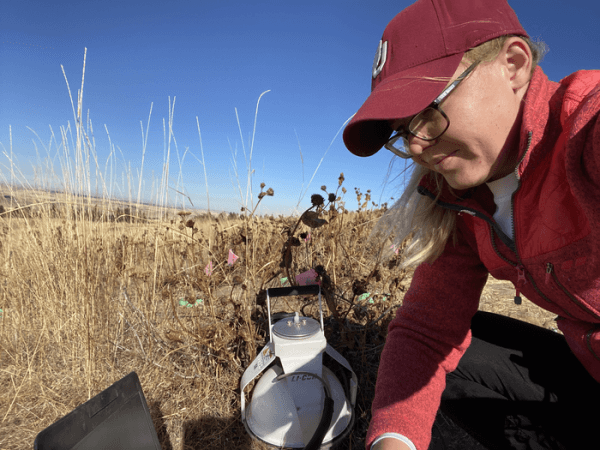Soils are home to diverse microbial communities that cycle nutrients, support agriculture, and trap carbon – an important service for climate mitigation. Globally, around 80% of Earth’s terrestrial carbon stores are found in soils. Due to climate warming and other human activities that affect soil microorganisms, this important carbon sink is at risk.
A new study led by Jane Lucas, a community ecologist at Cary Institute of Ecosystem Studies, investigated the interactive effects of rising temperatures and a common livestock antibiotic on soil microbes. The research team found that heat and antibiotics disrupt soil microbial communities – degrading soil microbe efficiency, resilience to future stress, and ability to trap carbon. The work, now available online, will appear in the December issue of Soil Biology and Biochemistry.
Lucas, says, “Most studies of soil health examine only one stressor at a time. Here, we wanted to explore the effects of warming temperatures and antibiotics simultaneously, to get a sense of how two increasing stressors impact soils.”
Read more at: Cary Institute of Ecosystem Studies
Lead author Jane Lucas measures CO2 production from prairie soil samples in Moscow, Idaho. (Photo Credit: Dana Whitmore)


